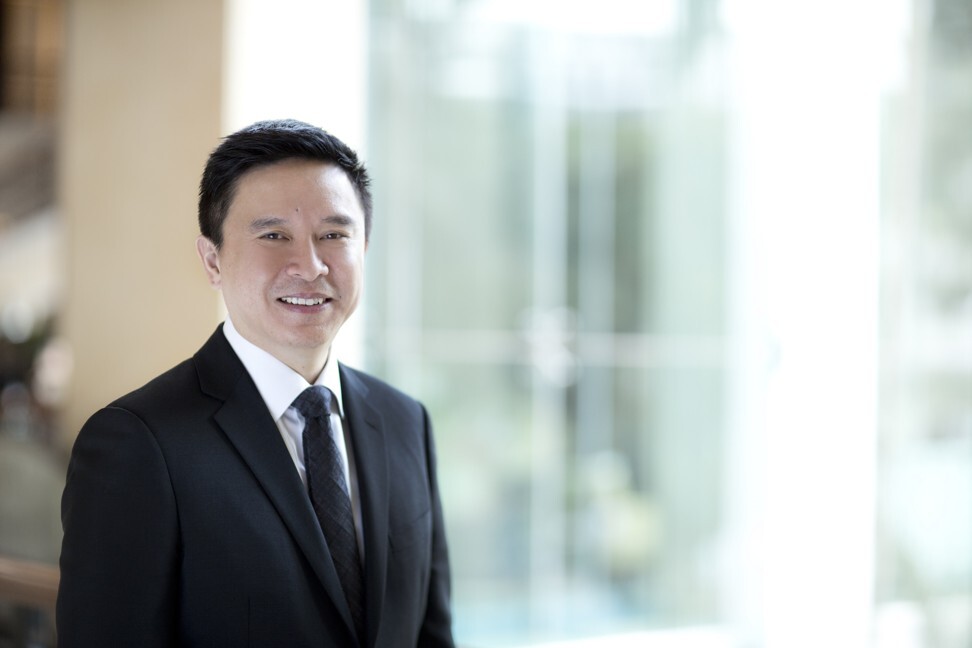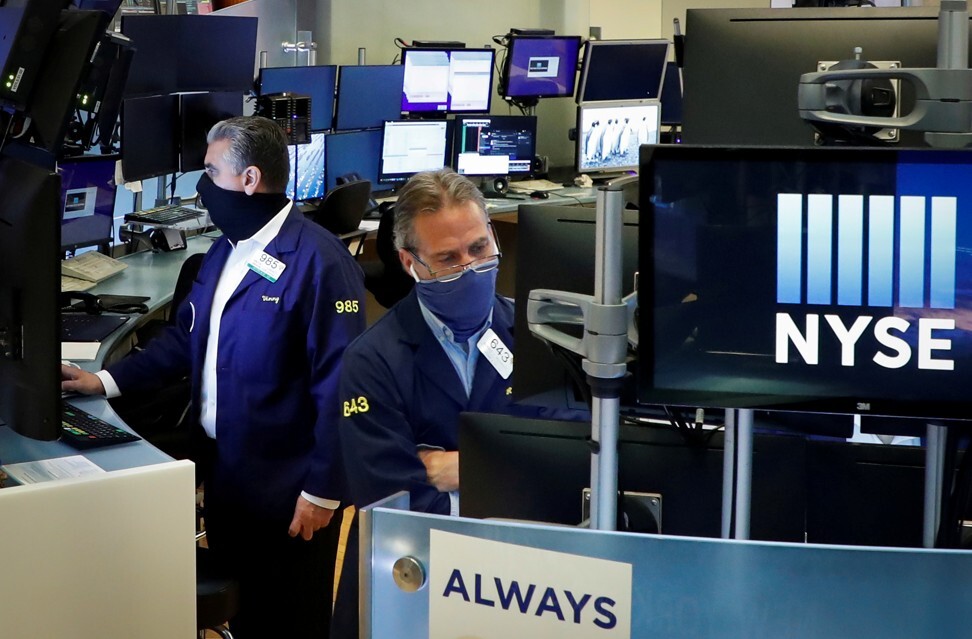
UBS Asia builds on last year’s bumper performance with a strong start to 2021 but boss cautions on bonuses
- Asia-Pacific contributed quarter of the Swiss lender’s 2020 pre-tax profits
- Talks ongoing regarding raising stake in China securities joint venture to 66 per cent
Swiss bank UBS is off to a strong start to the year in Asia, with profits tracking even higher than last year’s blockbuster performance, but regional boss Edmund Koh tamped down staff expectations of blowout bonuses.
“The beginning of the year has actually been stronger than last year … But let’s see, it’s still very early,” said Koh, who heads UBS in the Asia-Pacific region during an interview with the Post.
On banker bonuses, Koh said UBS would be prudent. It evens out staff compensation across good and bad years, so employees should not “get carried away, just because we’ve doubled our [regional] profits.”

As it weighs payouts, UBS also considers rewarding shareholders via dividends and buy-backs. That being said, “most [staff] should be happy”, said Koh, a Singaporean who has risen through the ranks at the world’s largest wealth manager by assets after joining the company in 2012.
Bonuses at UBS in Asia are likely to rise about 10 per cent on average and vary between top performers on the front line and the back office, people familiar with the matter said. That is less than at Wall Street banks Goldman Sachs and Morgan Stanley but higher than the bumps at JPMorgan Chase and Citigroup, according to Bloomberg. UBS will announce bonuses internally before the Lunar New Year next month.
In UBS’s Zurich headquarters, Asia is seen as a driver of future growth, particularly the region’s biggest market, mainland China.
For its part, UBS is keen to raise its stake in its brokerage joint-venture in China, UBS Securities, from 51 per cent to 66 per cent. However, it has yet to reach an agreement with the three other major shareholders in the business who are not ready to sell. “Conversations are still ongoing,” said Koh.
UBS has one of the broadest and longest-standing franchises among its peers in China, including wealth management, asset management and a futures trading and clearing unit.
“We need to increase our headcount” given China’s growing economic clout and investors’ demands for a more varied palette of financial products, said Koh. However, he declined to give specific targets because the Swiss lender’s plans are dependent on a nod from Beijing-based regulators.
The Swiss lender continues to see wealth management as the biggest opportunity on the mainland. However, “local banks are not ready for it”, said Koh, who expects Beijing to shield its financial system from the full force of foreign competition for some time.

“Our investment is a slow burn, and then sometimes you have to heat the fire really hot when the opportunity is there,” said Koh.
Driven by a surge in Chinese capital-market deals, industry-wide investment fees in Asia-Pacific excluding Japan hit US$28.5 billion in 2020, the highest level since records began in 2000, surpassing European fees for the first time ever, according to data provider Refinitiv. UBS ranked eighth among its peers in the last quarter of 2020 and second so far this year, only behind Morgan Stanley.
UBS helped bring in global investors to the Airport Authority’s bond, with the order book for the 10-year and 30-year tranche at over US$4.4 billion and US$4.1 billion respectively, an oversubscription rate of 4.9 times and 6.8 times.

Markets will remain volatile as trade tensions between the US and China continue, said Koh. Brokers such as UBS make more commissions when investors churn their portfolios in choppy markets.
UBS’s profit before tax from its Asia-Pacific operations doubled to US$2.2 billion last year, from US$1 billion a year earlier.
UBS, which caters to the world’s ultra-rich, said that assets under management in its wealth management unit surged US$110 billion organically to US$560 billion by December 2020 from US$450 billion a year earlier. More than two thirds of UBS’s clients are entrepreneurs and Koh said that during the coronavirus pandemic many of them could not travel and spent a lot of time at home, reviewing their investment portfolios.
“It’s been a phenomenal year for us,” said Koh.

